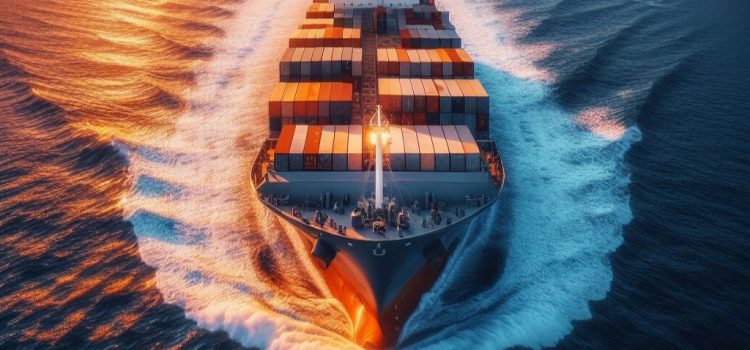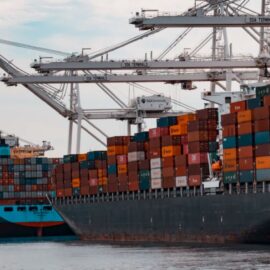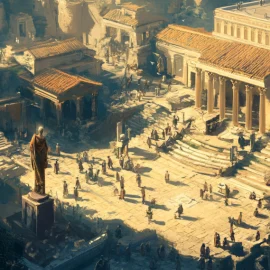
This is a free excerpt from one of Shortform’s Articles. We give you all the important information you need to know about current events and more.
Don't miss out on the whole story. Sign up for a free trial here .
What do the Houthi Red Sea attacks mean for global trade? What sparked the attacks? Will there be long-term effects on the world economy?
Houthi rebels’ targeted attacks on merchant ships in the Red Sea have disrupted one of the world’s busiest trade routes. To avoid the assaults, more commercial vessels are taking detours, which is raising shippers’ operational costs and disrupting the global supply chain.
Keep reading for a background on the Houthi attacks and how they may affect the world economy.
Attacks on the Red Sea
Once a global trade artery for goods worth $1 trillion annually, the Red Sea is being plagued by Houthi rebel attacks that are rerouting ships thousands of miles and jeopardizing the transport of everything from Crocs to Ikea furniture. Here’s how the Houthi Red Sea attacks might impact global trade.
Background
The Red Sea is one of the busiest trade routes globally, commanding 15% of the world’s commerce valued at $1 trillion annually. It’s a vital passage for transporting commodities like oil, gas, food, cars, and clothing from Asia and the Middle East to Europe.
In November 2023, Houthi rebels from Yemen began attacking merchant ships crossing the Red Sea, justifying their hostility as retaliation for Israel’s military offensive in Gaza. Rebels have staged over 30 attacks on ships since November, deploying missiles, drones, and sea mines, and seizing vessels.
Experts say that Houthi rebels are also using the violent acts to:
- Divert attention from their struggle to provide essential services at home amid ongoing economic hardships and humanitarian crises.
- Gain international attention and prove that major global players can’t ignore them.
International Response
The Houthi maritime attacks have prompted a global outcry. The UN Security Council has condemned the strikes and more than 20 nations have rallied to join a US-led alliance to protect merchant vessels from assault.
In response to the threat, the US and UK have jointly launched military strikes on Houthi targets in Yemen, including radar and weapons sites, to deter the group and diminish its attack capabilities. However, experts warn that these counterattacks, along with Iran’s support of Houthi operations are stoking regional tensions and could provoke broader disputes in the region.
Impact on Global Trade
To avoid Houthi attacks, a growing number of merchant ships are avoiding the Red Sea, taking a less dangerous, but considerably longer and more costly journey around Africa by way of the Cape of Good Hope. This adds thousands of nautical miles and more than 10 days to trips, raising shippers’ costs by up to $3 million per vessel. The added time and inflated expenses are rippling through supply chains, exacerbating production delays and raw materials shortages from the Covid-19 pandemic.
Experts say that if the Red Sea crisis persists, consumers could face substantially higher prices on imported clothing, cars, gas, and food. The extra costs from changing shipping routes and overall uncertainty could also lead to broader price inflation.
Looking Ahead
Analysts predict that Houthi attacks in the Red Sea could persist for several months to a year. While many assert that diplomacy is necessary to address the crisis and restore stability, skeptics point to potential hurdles, including:
- Growing domestic support for the Houthis within Yemen.
- The militants’ desire for direct confrontation with the US to bolster their international credibility.
- The ongoing conflict in Gaza.
These factors, they argue, could thwart diplomatic interventions.
Finally, some warn that a prolonged Houthi blockade in the Red Sea could have devastating effects on supply chains—increasing prices of goods and exacerbating global inflation, which could disrupt the world economy.

Want to fast-track your learning? With Shortform, you’ll gain insights you won't find anywhere else .
Here's what you’ll get when you sign up for Shortform :
- Complicated ideas explained in simple and concise ways
- Smart analysis that connects what you’re reading to other key concepts
- Writing with zero fluff because we know how important your time is






